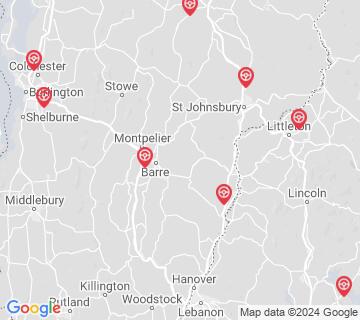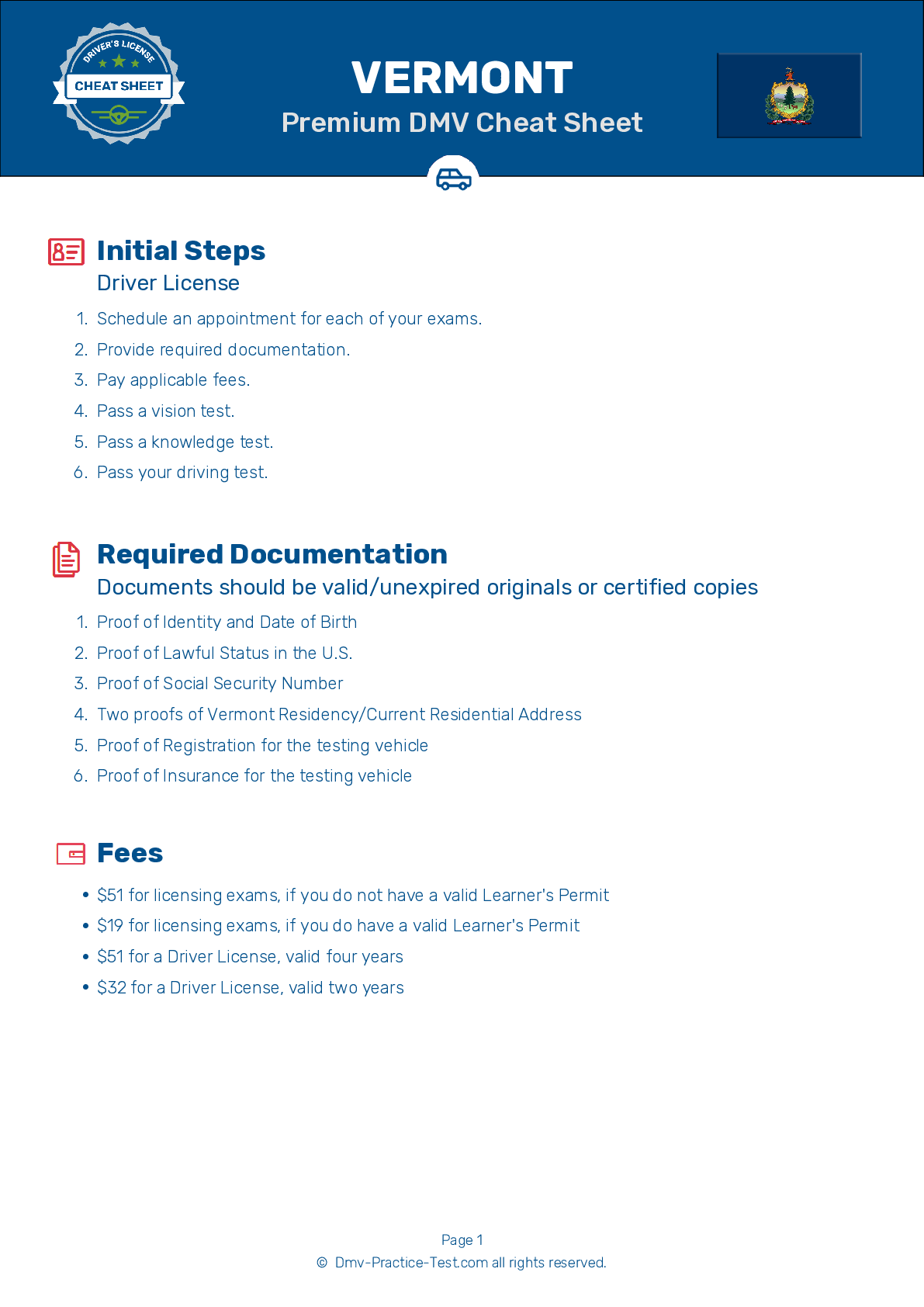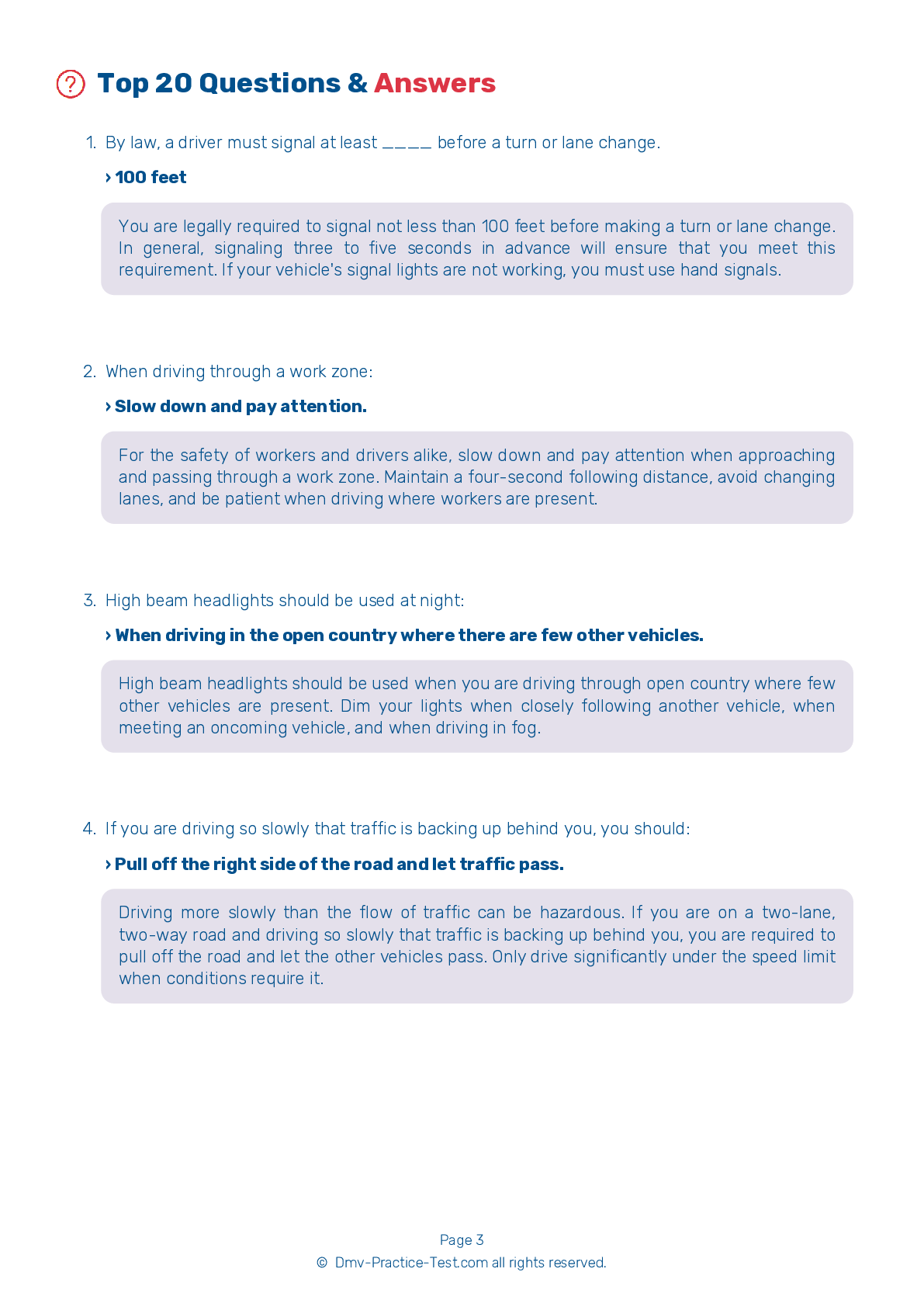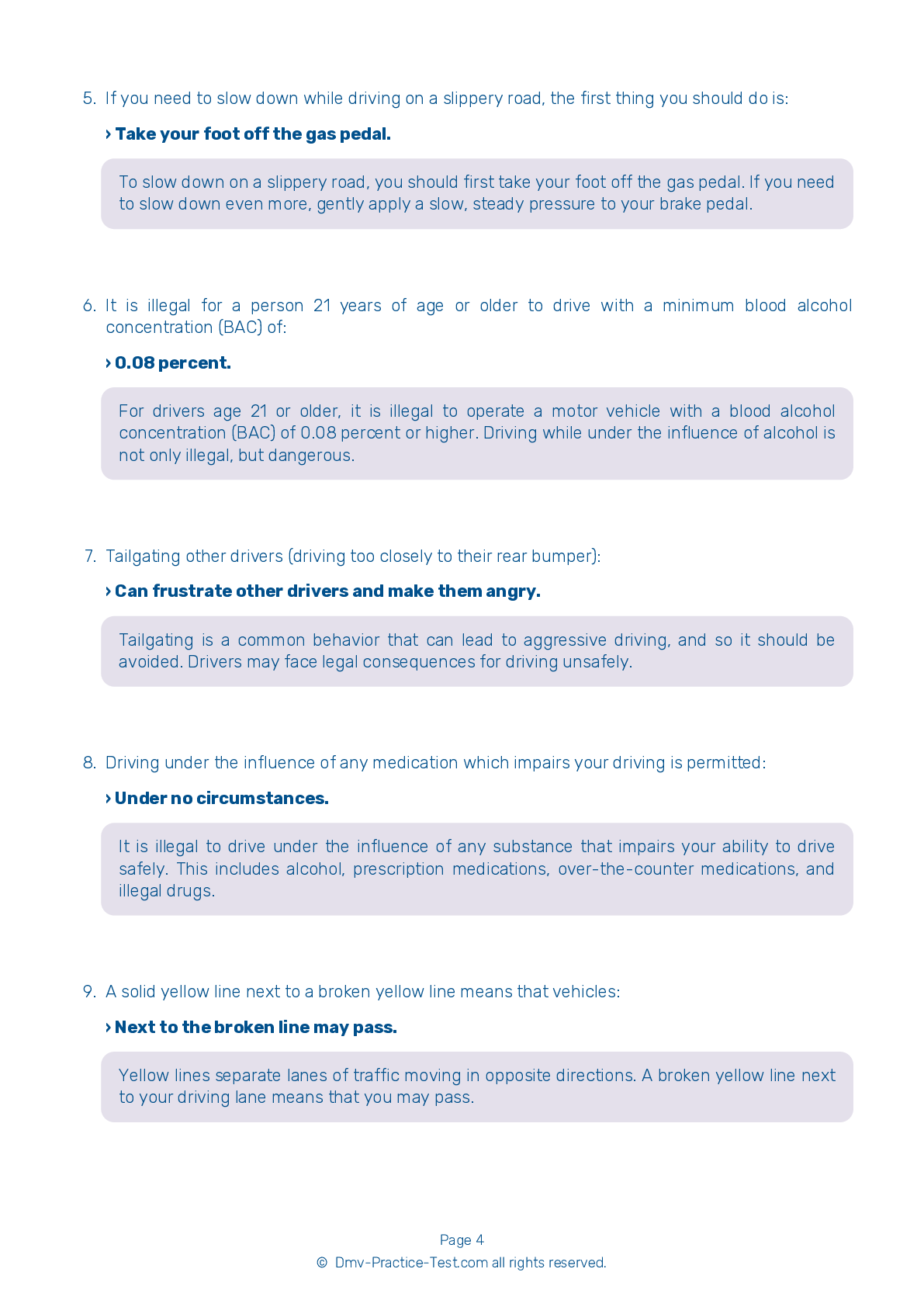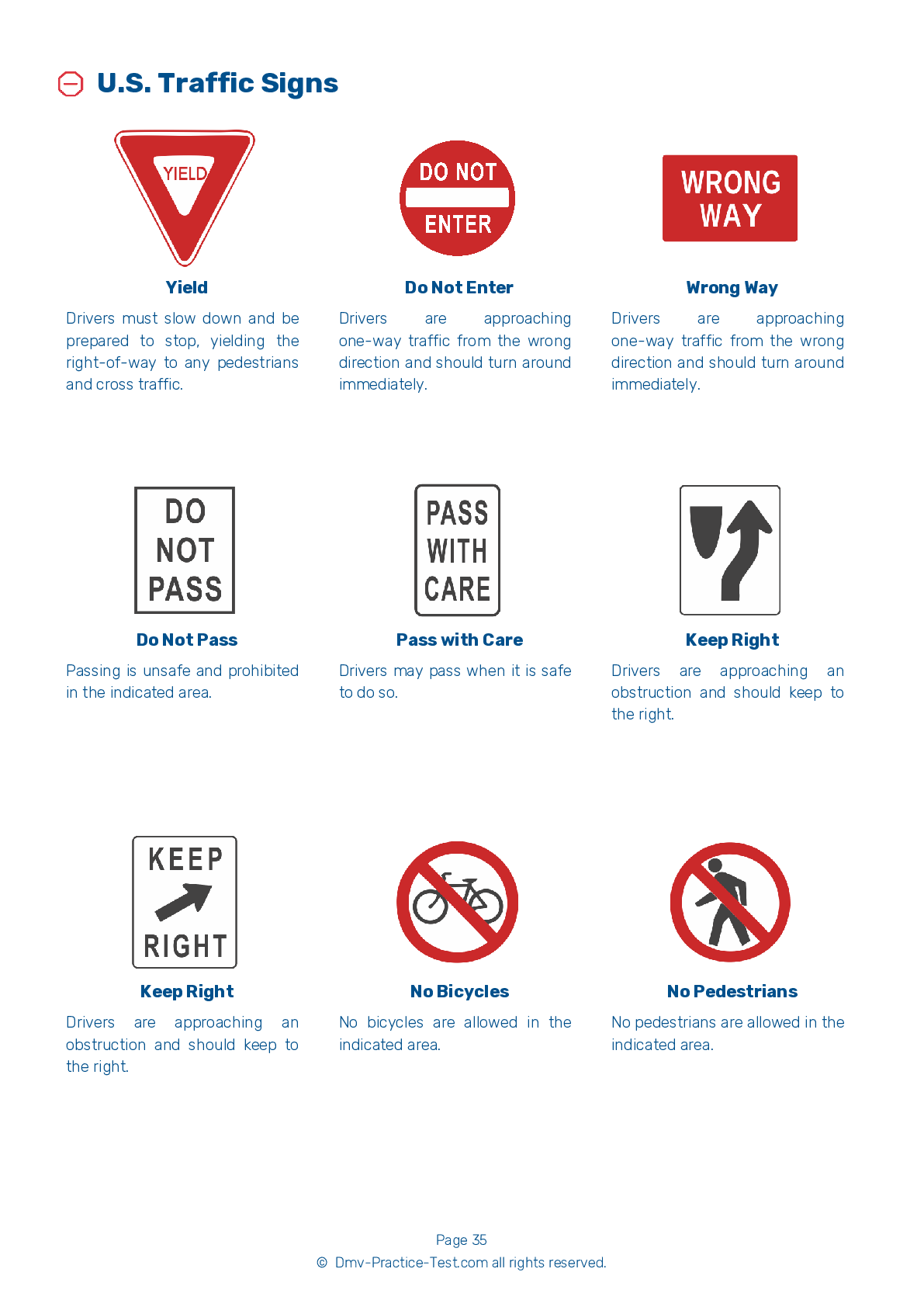FREE Vermont DMV Practice Test #18 Page 3 of 3
The Vermont DMV practise examinations have been updated for January 2025. It includes questions based on the Vermont Driver Handbook's most significant traffic signals and legislation for 2025. Use actual questions that are very similar (often identical!) to the DMV driving permit test and driver's licence exam to study for the DMV driving permit test and driver's licence exam.
On the practise exam, each question gets a tip and explanation to help you remember the concepts. The written component of the official Vermont DMV test will include questions about traffic rules, traffic signs, and driving statutes, as well as knowledge from the Driver Handbook.
To obtain a passing grade, you must correctly answer 16 of the 20 questions. Use the practise exam provided by the Vermont Department of Motor Vehicles to help you prepare for your instruction permit or driver's licence.
The DMV exam is available in several languages.
Using any kind of testing assistance will result in an automatic fail, and the DMV may take additional action against your driver's licence, so stay away from it.
14 . If an oncoming driver is heading toward you in your lane, you should:
If another vehicle is approaching you head-on in your lane, you should first honk your horn to attract attention. If the other driver does not move over, try to escape to the right. If you swerve left and the other driver corrects at the last instant, you will still crash. If a collision is unavoidable, brake firmly and steadily. Every mile per hour you slow down will reduce the impact.
15 . At dusk or on overcast days, you should:
At dusk or on overcast days, you must turn on your headlights. Dim your lights to their low beam setting when within 1,000 feet of an approaching vehicle and when within 500 feet of a vehicle that you are following. When driving in poor weather, always use your low beams.
16 . A red traffic signal light means that you must:
A red traffic light means that you must stop before entering the intersection. You must at any stop line and before entering any crosswalk.
17 . If someone has consumed alcoholic drinks, what will help the person overcome the influence of those drinks?
Only the passage of time will allow a person to overcome the influence of alcohol.
18 . Your body gets rid of approximately:
The average person’s body will process about one alcoholic drink in one hour. However, many factors play a part in determining how impaired a person will become when consuming alcohol, including the amount of alcohol consumed, how fast it is consumed, and a person’s body weight, food intake, and general health.
19 . Distractions that can take a driver's attention away from driving include:
Because of the potential for distraction, it is illegal to use any portable electronic device while driving. You should avoid eating or drinking while driving. Pets can also distract you, so they should be kept in carriers when riding in a moving vehicle.
20 . When you see this black and yellow sign, it means:
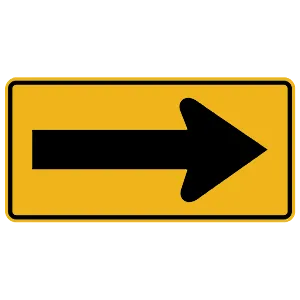
This sign indicates that the road ahead changes direction at an extreme angle (in this case, to the right). Before you reach such an extreme curve, you should slow down as much as you would when making a turn at an intersection.
Search the best driving school in your neighbourhood
2025 Vermont | Frequently Asked Questions
1. Not checking mirrors and blind spots before changing lanes or turning.
2. Speeding or driving too slowly for the conditions or posted speed limit.
3. Not coming to a complete stop at stop signs or red lights.
4. Incorrect signalling or not signalling at all.
5. Poor parking, especially parallel parking.
Remember, practice makes perfect, so take time to hone your skills.
